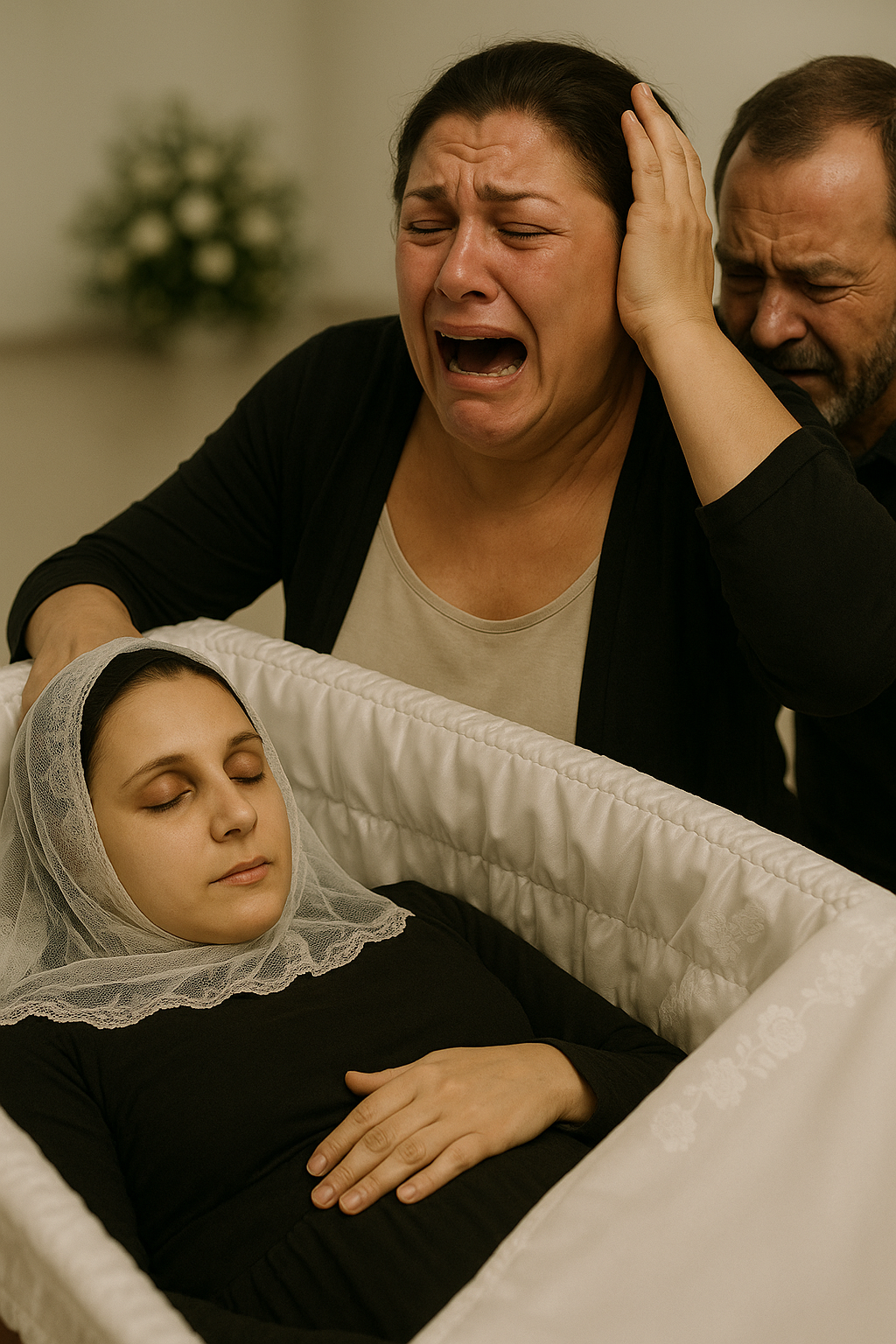A Mother’s Cry at the Funeral
The hall was silent, heavy with grief. Relatives, friends, and neighbors had gathered in white surroundings to say their last goodbye to a young woman who had passed far too soon.
Her illness came quickly—just a few days of fever and weakness—and then it was over.
Doctors had named it a rare brain inflammation that led to sudden cardiac arrest.
Attempts to bring her back had failed.
A Daughter’s Still Face
Inside the coffin, she looked almost peaceful, as though asleep. Her delicate hands were folded gently over her chest.
Her mother stood above her, sobbing openly, unable to contain the waves of pain.
Her cries cut through the stillness, making hearts ache all around.
“Take me with her!” she cried out. — I can’t live without my girl. Bury me next to her. I don’t want to breathe another day without her!
Her husband tried to hold her steady, his own tears spilling. Relatives came forward, one by one, whispering words of comfort, wiping their eyes. The weight of sorrow was crushing, almost unbearable.
A Sudden Realization
And then something shifted.
The mother froze.
Her face changed as she leaned down closer, searching, studying. For a moment, the room seemed to hold its breath with her.
Then, suddenly, she gasped:
— Wait… her chest… She’s breathing!
Hope in the Midst of Grief
At first, many thought it was just grief playing tricks on her mind. Surely it was her imagination. But then, slowly, others saw it too—the faintest rise and fall of a chest.
— She’s alive! — a voice shouted. — Oh God, she’s alive!
Panic broke the silence. Some people stood frozen; others reached for their phones, rushing to call an ambulance.
When the doctors arrived, they were nearly knocked over by the desperate crowd. They checked quickly — and yes, a pulse was there. Weak, but steady.
She was lifted from the coffin and taken straight into intensive care.
The Diagnosis
The next day, the truth came. It wasn’t de@th at all, but a rare condition known as lethargic sleep.
It mimics de@th so closely—body temperature dropping, breath so faint it seems gone, pulse nearly invisible.
The doctor who had examined her had made a mistake. He hadn’t caught the tiny flicker of life that was still there. A certificate had been signed, the funeral had begun, and only a mother’s desperate glance had saved her daughter from being buried alive.
A Second Chance
Now, the girl lies in the hospital, stable and slowly recovering. Each day her strength grows.
Her mother never leaves her bedside, clutching her daughter’s hand, whispering the same words again and again:
— It was a miracle. And I knew it… my heart told me so.
